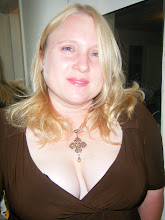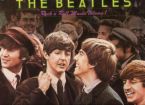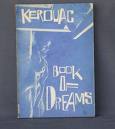 Going, Going, GONE!
Going, Going, GONE!And they're out of here!
The bags are being packed. Reservations are being made. Preparations being completed. To-do lists checked off.
In just a few days, we are leaving for an action-packed family adventure, Pacific Northwest style. Internet connectivity will be sporadic where we are going, so it will probably be about two weeks before any stories or pictures will be posted. I can't wait to share this adventure with everyone.
First stop: Everett, Washington for a job interview. If the money is right and they are willing to wait some months, I will probably accept the job offer. We really feel like this is the direction God is taking us in and fully expect to be moving to Washington State at some point in the near future. Our friends know how long we've been talking about moving out that way; now let's see if I can hit that home run to get us out of the ballpark.
Second stop: The A.P.E cache! Oh yeah, baby!

For those non-geocachers out there, the A.P.E. geocache is the "Holy Grail" of caching in the continental United States. In 2001, when geocaching was in its first year, the movie Planet of the Apes came out. As part of a marketing promotion, the movie trailers would display, at the very end, a set of coordinates that lead one to a very special geocache filled with lefover props, costumes, and effects from the movie filming. These were known as Project A.P.E. caches. There were fourteen original Project APE caches, but there is only one still active in the United States, and it happens to lay along the highway that we (ahem) "need" to take to get from the Seattle area to southern Oregon, home of the in-laws. This cache requires a hike along a trail in the Cascades, pictured above. Once the find is logged online, a geocacher gets a very special electronic icon. Let's see if we can get this little guy on our profile!

After this, it will be a long road trip through central Washington and Oregon to the in-laws in New Pine Creek, on the California border. We will probably stop overnight in Bend, OR, which is the little town my husband loves so much. There will be much geocaching. I have about 170 caches bookmarked for this trip, including some very old caches near the in-laws house, and covering three states. In fact, my husband is quite suspicious that this trip has less to do with the job interview and the family visiting and more to do with adding to our player stats!

After spending a week with family, perhaps in and out of Klamath Falls where we used to live, we will be criss-crossing our inbound path on a shorter outbound road trip to Portland, OR. On the way, we will pass by the town of Goverment Camp, at the base of Mt Hood. There are some cool caches out that way.
Oh, and on the way, along the stretch of highway that we (ahem) "need" to take back, just happens to lay the site of the very first geocache ever placed. In May of 2000, Dave Ulmer hid
 a bucket in the woods southeast of Portland and started this addicting game that has drawn, last count I heard, 1.5 million players, with 1000 new people joining the site every day. The "Original Stash" is no longer there, but there is a plaque at the site commerating the occasion with an ammo can nearby. T
a bucket in the woods southeast of Portland and started this addicting game that has drawn, last count I heard, 1.5 million players, with 1000 new people joining the site every day. The "Original Stash" is no longer there, but there is a plaque at the site commerating the occasion with an ammo can nearby. T his is a cache find itself and happens to be the most logged cache in the world, with, as of today, 1933 logged finds. I want to grab this one while in the area and add my name to the list, as well as the other nearby cache, the Un-Original Stash. Check out this path you walk along to get to it. It is so beautiful!
his is a cache find itself and happens to be the most logged cache in the world, with, as of today, 1933 logged finds. I want to grab this one while in the area and add my name to the list, as well as the other nearby cache, the Un-Original Stash. Check out this path you walk along to get to it. It is so beautiful!Currently I am a bundle of nerves. I am so excited to be making this journey through an incredibly beautiful part of this country. I am very worried about flying. My aerophobia has increased to a point where I can only grip the seat handles, break out in a cold sweat, and pray the whole time, and I can't look out the windows anymore. I am a little anxious about the job interview, only because so much seems to rest on it.
Mostly, though, I just can't wait to start following the needle on my compass through cool mountain paths like this one, hunting ammo cans filled with travel bugs.
I will post updates as soon as I can get them out there. Can't wait!






































